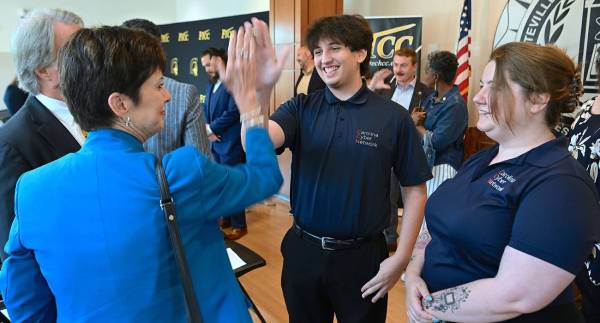North Carolina passes crowdfunding-for-small-businesses law
North Carolina just joined about 30 states that have passed laws allowing local businesses in the state to seek small investments from private parties using crowdfunding.
The legislation, signed last week, takes advantage of federal guidelines that create a pathway for (usually) small-time investors who aren’t accredited by the U.S. Securities and Exchange Commission to support small businesses in their own state. Under the new law, local businesses can raise funds through privately created online portals or use a state-run portal that North Carolina would need to develop.
“What happened over the past 20, 30 years is that we saw the development of a private placement market where companies were really only able to look to the most wealthy investors to support them in a private offering,” said Benji Jones, a partner at securities law firm Smith Andersen who consulted on the bill.
But with the new North Carolina’s PACES Act, short for North Carolina Providing Access to Capital for Entrepreneurs and Small business, she said small businesses that don’t want to become publicly traded can raise money from many smaller investments — up to $2 million every 12 months if they file a financial audits.
“If you stay within the requirements of the path we’ve created, our North Carolina companies can now reach any type of North Carolina investor, irrespective of their wealth or income or sophistication,” Jones said of the bill, which passed after two failed attempts.
The federal Jobs Act, passed in 2012, created an avenue that allowed small businesses to crowdfund, but it let states set their own rules for such transactions if they took place within their borders. When the SEC published rules governing crowdfunding four years later, it set up complicated bookkeeping requirements that could make it difficult for some businesses to participate, according to Anthony Zeoli, a corporate and securities lawyer. However, under Rule 147, the SEC said states still had the power to set their own crowdfunding rules.
“Basically, Rule 147 says whatever happens in the state can be governed by the state, so all the states then take that and extend it by putting in their own crowdfunding offering rules,” said Zeoli, who helped write a similar bill in Illinois.
States like Oregon and Texas have already taken advantage of this rule and passed their own laws.
The North Carolina secretary of state anticipates having regulations in place before the law’s deadline next July, according to Jones.
State Sen. Tamara Barringer, a Republican, a coauthor of the bill, told StateScoop the secretary’s office has already begun developing regulations based on the law, and she’s hopeful it will help stimulate the state economy.
“It’s going to be an excellent driver for business in North Carolina,” she said.






